Research
zaidaninfo
From the Foundation
update:April 11, 2022
What is meant by “Interlinkages and Innovation for Future Societies: Reevaluating Social Issues and Forging New Solidarity in the New Normal Era”?
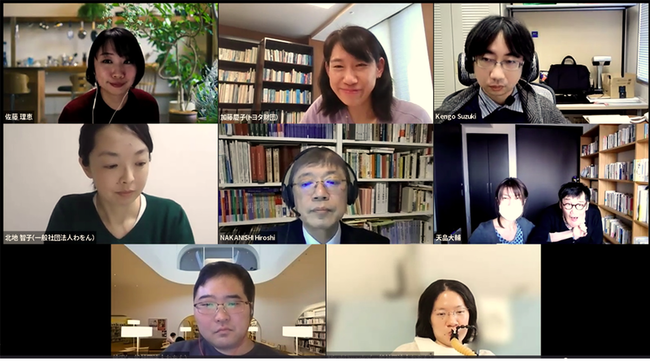
In 2021, the Toyota Foundation Research Grant Program established “Interlinkages and Innovation for Future Societies: Reevaluating Social Issues and Forging New Solidarity in the New Normal Era” as the new theme for the grant program. On March 10, 2022, approximately six months after the first year of the grant began, we held an online roundtable discussion with the Selection Committee Chair and representatives from three of the grant-recipient project teams. They discussed the theme of the grant program based on their respective research projects and interests.
Speakers
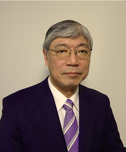
Hiroshi Nakanishi
Professor of the Graduate School of Law at Kyoto University. His expertise is in International Politics. Since 2021, he has served as the chairperson of the Selection Committee of the Toyota Foundation Research Program. His publications include the 4th Yomiuri-Yoshino Award Winner, Kokusaiseijitoha Nanika (What is International Politics) (Chuokoronshinsha, 2003) and Kosaka Masatakato Sengonihon (Kosaka Masataka and Postwar Japan) (co-edited and authored, Chuokoronshinsha, 2016).
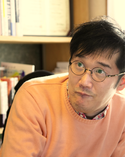
Daisuke Tenbata
<Project Title> "Realizing employment for people with severe physical disabilities requiring 24-hour care: A reexamination of the disallowance of assisted work from the viewpoint of people with disabilities" (D21-R-0042).
Born in 1981, he lives in Musashino-city, Tokyo. At the age of 14, due to medical malpractice, he was bedridden with phonaesthesia, tetraplegia and a visual disability, which have left him permanent physical disabilities. Having graduated from Japan Lutheran College & Seminary, he is currently studying at the Graduate School of Core Ethics & Frontier Sciences, Ritsumeikan University. The main theme of his research is the study of "Persons with disabilities and their communication". Besides his research, he has been managing a non-profit organization for children with disabilities to provide them with continuing support and assistance.

Dr. Tenbata’s Team
Five people from Wawon, a general incorporated association where Dr. Tenbata serves as Representative Director, took part, including Takuro Shimada, who is on the Secretariat, Tomoko Kitaji, Naoko Saito, and Misaki Iwaoka. Due to his difficulties in vocalizing himself, Dr. Tenbata’s comments are made through assistive interpreting by Ms. Saito using the A, KA, SA, TA, NA communication method.
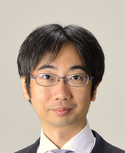
Kengo Suzuki
<Project Title> "Proposal of co-creation of sustainable future visions using a gaming approach: A case study of the Mini SMART EARTH concept" (D21-R-0061)
Ph.D., Assistant Professor. Division of Engineering Mechanics and Energy, Faculty of Engineering, Information and Systems, University of Tsukuba. He has over 4 years of experience in survey and analysis of Japanese and world energy economics in IEEJ. He focuses on the experimental study of fuel cells, especially water transport phenomena inside fuel cells, energy system modeling using I-O analysis, mathematical programming, and gaming simulation. He is interested in game-based learning of energy and environmental issues in higher education. His recent work includes K. Suzuki (2022) Simulation and Gaming for Social Design, 125-147, Springer. DOI:10.1007/978-981-16-2011-9_7.
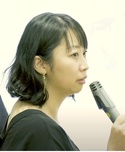
Rie Sato
<Project Title> "Research on a citizen-participatory local governance process using DX to solve the disengagement of young people from politics, which has been exacerbated by the decrease in interaction and distrust of politics in the coronavirus pandemic" (D21-R-0097)
Graduated from the Kanagawa University of Human Services, Faculty of Health and Social Services, Department of Nursing, and completed a specialisation in Medical Management at Keio University Graduate School of Health Management (Master of Public Health). After working as a nurse at a general hospital and as a service delivery manager in a long-term care business, she joined issue+design in 2019.
1) Explanation of Program Objectives and Introduction of Projects
Foundation We would first like to introduce how the new theme for the grant program “Interlinkages and Innovation for Future Societies: Reevaluating Social Issues and Forging New Solidarity in the New Normal Era” was created and the messages of the Toyota Foundation on the topic.
In 2020, we paused the research grant program and spent about a year considering a new grant theme. During this time, and completely unexpectedly, the COVID-19 pandemic occurred, and everyday life changed in the blink of an eye. Significant restrictions were imposed not only on going out and about, but also on person-to-person contact, and we experienced both a mental and physical “separation” that we had never previously imagined. However, on the other hand, it has also been a time when we have seen many moves toward collaboration and cooperation.
We also believe that the problems raised by COVID-19 are not only about person-to-person connections. There is a growing movement to fundamentally reexamine our existing social systems and connections with the natural environment. It could be said that the way living "With COVID-19,” coexistence with the virus, should be is being questioned with humans as inhabitants of the earth. Based on this awareness of the issues involved, we came up with the theme for the grant program.
All of you taking part in this discussion today have diverse research projects and come from different backgrounds. What was your understanding of the theme and how did you come to apply for the grant program? What was your understanding of the keywords such as “interlinkages” and how will you achieve the kind of society you are hoping for through your projects? Today we would like to talk about these questions and think about the new theme together. The program has only just begun and we would like to nurture it with you, so we are looking forward to working with you today.
So, first of all, could you give us an overview of your research projects?
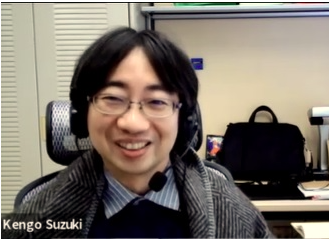
Dr. Suzuki To put it simply, we are designing a game about global sustainability, and we are deepening and sharing our understanding of the state of the world and exploring what we can do about it in the future by getting together to play the game.
Why a game? Because we believe that games are models for the world. For example, we can say that shogi and chess are models for war. The battlefield and the war situation are objective things observed from the outside, and the world of the game can be modeled as both objective and subjective at the same time, as the players see their opponent's moves and think about their own moves, which they experience as a party to the game.
At the moment, human activity is destabilizing the climate and ecosystem, which in turn are destabilizing the human world. Further, to understand the state of the world, we need both objective and subjective perspectives. For instance, an increase in CO2 emissions and a rise in temperature or the loss of biodiversity due to climate change are objectively observed phenomena. On the other hand, phenomena such as lack of international cooperation or rising energy prices are the result of market participants and national decision makers recognizing and acting on objectively observable events. In other words, it is only when we incorporate the perspectives of the parties involved (subjectivity) that we understand the actions behind the phenomena.
So, we wondered how we could work out why the world is unstable by using a game. This is the question for the current research. My background is in engineering, but various people are participating in making the game, including professors of agriculture, education, and philosophy, as well as university alumni who studied design. We are still in the design stage. We ourselves will first create a medium that can represent the world, and then take it to various places for discussion based on the rules of the game and our experience of playing it. I believe this is one kind of new interview format. First, as a preliminary step to exploring a vision of a sustainable world, we believe it is important to present our "worldview" - how we ourselves understand the state and trends of the world. The medium for expressing this "worldview" is the game, and we hope to bring it to its final form in the two years of the grant period.
Foundation Thank you. Now Dr. Tenbata next please.
Mr. Shimada I am from Wawon, a general incorporated association, and will give you an overview of the project conducted by Daisuke Tenbata’s team. Our goal is to conduct research, surveys and analysis, and provide policy recommendations on the theme of supported employment over two years. Previously, there were significant hurdles for people with severe physical disabilities to work in workplaces accompanied by a care worker. However, interviews conducted over the past six months have revealed that, with widespread telecommuting during the COVID-19 pandemic, there are both hope that people with severe physical disabilities will be able to work as well, and challenge that barriers still exist.
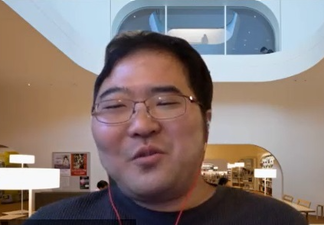
In addition, over the past half century, people with severe physical disabilities have had a history of initiating the disability movement by themselves, creating the welfare system for the people with disabilities. in Japan, so we conducted a preliminary study on the history of social movement research. We have summarized the history of the employment system and the results of the study in the handbook “Nanisore!? Kaijotsuki Shuro” (What is it!? Supported Employment) to be published this month. The aim of the handbook is to make the reality of supported employment widely known, not only to encourage a desire to work, but also to let their supporters know that such an option even exists. Since we were able to produce the handbook early in the grant period, we hope to link it to events and other activities in the next phase.
We also conducted a questionnaire on working and found that there is a wide range of needs for supported employment, including those who need support 24 hours a day, as well as those who only need assistance with toileting or a little help. This is important data showing that having support allows people to work with peace of mind and develop their careers. We plan to conduct a large-scale qualitative and quantitative survey on this issue in the future. These voices will be a major force for policy change, so we would also like to consider ways to deliver them appropriately at the same time.
Dr. Tenbata One thing that emerged from the results of the study on the disability movement is that there has been a backlash. As people with disabilities gained new rights, concerns were voiced that they were being treated too favorably in terms of systems and finance. We found this through interviews with the people who were responsible for taking action before us. Backlashes may continue to occur in the future as new supported employment is introduced or the system is changed. We believe that one of the challenges is how we recognize and discuss them.
Foundation Could you continue please Ms. Sato?
Ms. Sato We are working in a project team called Mirai+Corona. We launched the project when the COVID-19 outbreak occurred and the state of emergency was declared for the first time. At the time, online conferencing was not widely available, work was halted, and people were unable to go out and about due to the request for self-restraint, and many voiced their concerns about the future to us. However, even in such a situation, there are services and new values that can be created only because of the COVID-19 pandemic, and we started our activities with the hope that by focusing on such signs of social change, we could think a little more positively about the future and make some allies. The governing organization behind Mirai+Corona is called issue+design. It is a non-profit organization that was originally formed with the goal of taking on the challenge of solving local problems using the power of design.
I feel rather nervous about talking politics in front of Professor Nakanishi, but in the course of my community activities, I have felt that improving cities cannot be separated from the relationship with local government. However, there are also many people who are actively involved in community activities but have no interest in or do not understand politics. Among the younger generation, some distance themselves from elections and politics because they feel they are outnumbered even if they do vote. It has been found that, even during the pandemic, distrust of politics is stronger in Japan than in the rest of the world.
In other countries, various digital platforms have been established for impartial online discussions on policies and for residents to make suggestions to the government. It is very exciting to see how residents are speaking out and taking action on global issues such as the climate crisis. There are similar efforts in Japan, but I think we need to do something more since those efforts seem to be only reaching people who are interested in politics anyway. Therefore, our goal is to create a place where residents who want to improve their community can be proactive about getting involved. We thought that digital transformation (DX) would be useful to make it easier for those who have difficulty leaving their homes or lack time to participate. We have partners throughout Japan who are involved in community development and human resource development, so we would like to work with them on how we can introduce a system that facilitates participation in local government and how we can make it widespread throughout society.
2) Motivation for applying – For each social issue and new solidarity
Foundation Next, I would like to ask you all to speak freely about what your thoughts were on applying for the program.
Dr. Suzuki I have always felt uncomfortable about becoming an expert in a particular field. For example, my specialty of engineering is divided into mechanical engineering, electrical engineering, and architectural engineering, and within mechanical engineering there is fluid engineering, thermal engineering, and so on, which are further subdivided. You have to be an expert in one of them to do cutting-edge research, but I have wondered whether that is enough.
For instance, if we want to know about energy issues, having mechanical knowledge would not be enough. We cannot answer the question of why the energy supply is not working well without knowledge of social science, which is outside of engineering. I have always wondered if it is possible to deal with a complex world as it is in all its complexity. So that was my motivation for incorporating games into research.
The opportunity for applying to the research program came from another department at the University of Tsukuba, with which I am affiliated. The other department had a research team working on a project to consider global sustainability, and they approached me as well.After hearing what they had to say, we decided to create a game together. Modeling a complex world by oneself is difficult, so I am very happy to be able to work on it with researchers in other fields. Frankly, I am very grateful to have been selected for the research grant program.
The team originally participated in the goal study for the Japan Science and Technology Agency (JST) Moonshot Research and Development Program and was conducting research and studies aimed at constructing a long-term social vision. However, in the course of the team's discussions, our focus shifted from what should be done in the future to the importance of laying the groundwork for discussions toward that goal.
In terms of the impact of COVID-19, it has been hard for people to get together to play the game, which makes things difficult. There are differences between playing a game that was originally played by people gathered together and playing it online through Zoom.
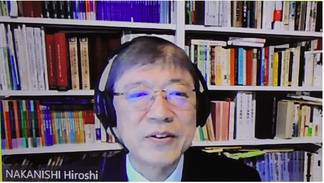
Professor Nakanishi I think the word "game" brings up different images for different people. What kind of game are you working on? One more thing, can you tell us about the differences between online virtual communication and face-to-face communication and connection from your professional point of view?
Dr. Suzuki The game in this case is supposed to be something that everyone does around a table with paper and dice. There have been attempts to play such board games online, but it is not the same experience. What people experience face-to-face and virtually are sure to be completely different. I have been thinking about the reason for this for some time. It is only a thought, but for instance, if we were in the same conference room right now, we would perceive the space using our five senses. This includes all elements of the environment, seeing with our eyes, hearing with our ears, feeling the drafts and so on. There are individual differences in the information we take in to start with, and what part of the information we focus on, for example, the part of the conference room we look at.
However, when it comes to the virtual world, as is also the case right now, we have no more visual information than what we get from a flat screen on Zoom, and the only auditory information we have is the stereo sound from both ears. Other things, such as the temperature of the room, are probably sure to be different for each person, but they are not shared. In other words, the quality of information is completely different when it is virtual.
Recently, there have been some online games that use a high-performance virtual space called the metaverse, but I don't believe they come close to being real. They are only an experience of a subjective world created by someone else. In the same way, I don't believe that it is possible to recreate online what people do when they come together in a place to play board games.
Professor Nakanishi I understood your point very well.
Ms. Sato We are also making a game about the climate crisis just now. It is a game to learn about the current state of climate change, what will happen to our planet if the current state continues, and what we can do about it. What was originally a card game is now an online game, but I still think that face-to-face and online communication should be regarded as being different, and I believe they each have different advantages.
For instance, the sense of solidarity that we are a team who have achieved something together, who have collaborated is a feeling that can only be obtained by working on a mission in the same space. In an online open space, even if several people play a game and accomplish a mission together, it ends up being a personal experience. Therefore, we find it difficult to achieve the sense of solidarity that allows us to move onto actual action next.
Dr. Suzuki Besides, online games are not sustainable because they consume energy (laughs). As an energy expert, I would recommend energy-saving board games.
However, I don't think it is true to say that there isn’t human interaction in the online environment. People who are enthusiastic about playing online games with large numbers of participants seem to enjoy forming teams, and one of my friends has even married someone they met doing this. I imagine that there may be some communication that occurs precisely because of the lack of information.
Also, when face-to-face classes were not possible due to the COVID-19 pandemic, we tried out classes where we played browser games and had discussions. Certainly, there are narrow communication pathways when online. But since everyone was in front of a PC or a device, we could even play games that would be difficult to play in a classroom. Game results could be streamed to the screen in real time, and although students would not normally raise their hands to ask questions, they could post all sorts of things on the anonymous online bulletin board, to which I could comment in real time. In other words, although it would be difficult to do it in the classroom, online with a device, we could not only play the game but also conduct a class that included a review, which gave us a sense of new possibilities.
Dr. Tenbata I think that the widespread use of Zoom has changed the way we communicate. However, although the volume of communication may have increased, I feel that the quality has declined. Listening to what Mr. Suzuki said made it clear to me that the decline in quality is due to a loss of diversity in interpretations.
The more widespread use of teleworking due to the COVID-19 pandemic has been a very significant help for people with severe physical disabilities to work. Teleworking has certainly expanded the potential for being able to work. However, if it is considered that people with severe physical disabilities can just work from home, they will not be able to interact directly with people who does not have a disability in the workplace, think together about reasonable accommodations, or work receiving such accommodations anymore. In other words, while the volume of communication with coworkers has increased even while teleworking through Business Chat and other methods, there has also been a decline in what is understood outside of textual information, resulting in a narrower range of interpretations.
Foundation From what you are all saying, it is gradually becoming clear that we are in the midst of a transformation in communication brought about by the shift to the online environment, and that each environment has positive and negative aspects. Ms. Sato, what motivated you to apply for the research grant program?

Ms. Sato Our project originated from our efforts to address the climate crisis. In Japan, when it comes to actions related to the climate crisis, there are many proposals within the scope of what individuals can do, such as saving water and electricity, and I think it is difficult to obtain information that leads to reliable measures to reduce greenhouse gas emissions by "half" rather than "a little". However, if you look around the world, there are many activities such as the Barcelona Commons, where political parties are formed to promote activities, and climate citizen conferences are held to actually make recommendations. In such countries and regions, people are often closely involved in politics on a daily basis, such as being exposed to political activities even before they are old enough to vote. I believe that we need to build a system that facilitates this participation in local government considering what is possible in Japan, which has a different environment.
I would also like to talk about the background behind our decision to consider applying. First of all, even for a single game, it often takes a long time to start the project, develop the program, release it, and recover the invested funds. In addition, since many services target people in need, it is often difficult to generate revenue directly from service users, so it is difficult to allocate funds for preliminary research with a view to project development. We considered various other grants, but they required that the research plan be finalized and that a site for demonstration testing be in place. In this situation, the Toyota Foundation's grant program was very good in that it provided support from the research stage. In addition, since our projects often change course as we work, it is very reassuring that the Toyota Foundation's will respond flexibly to any changes in the plan that are needed to achieve our objectives.
Professor Nakanishi I think the KAKENHI Grants-in-Aid for Scientific Research is the most familiar grant for researchers. However, we do not give much credit to projects that are perfect for KAKENHI but are without a practical application. Although the selection policy is in the process of being worked out, projects that researchers undertake for the sake of pure research are outside the objectives of the grant program. Of course, the results of research in the form of academic papers and so on are acceptable, but we are willing to actively evaluate and support research that has a social impact in a positive sense even if it is not academic research. I believe that Ms. Sato's case will serve as a good reference for future applicants.
I would also like to comment on Ms. Sato’s statements as a political scientist. Like her, I believe the very wide distance between politics and the general public in Japan is a problem. I am the oldest here, and if I look back to the Showa era, one of the keys was the workplace. There was a route connecting the workplace to politics, either as a company to the ruling party or as a worker to the opposition party. The workplace, an outside space, and the home, a private space, were compartmentalized, and the workplace and politics were connected in a reasonably stable manner. However, this link was gradually broken from the Heisei through the Reiwa era. While the connection from the workplace to politics has weakened, new channels from the home to politics have not emerged. This is one of the characteristics of Japan, and I think it is a problem.
As was already mentioned, face-to-face communication involves the use of all five senses to communicate comprehensively, including the atmosphere and various noises. I feel that Japanese people have a very keen sense of this aspect of communication, and that they have a culture that values it. In this sense, the concrete human connections of the workplace as a unit of social life have provided a certain stability. However, nowadays, communication has become more diverse, and it is difficult to create the kind of intensive communication that existed in the workplace in the past. So the idea of a commons, for example, that Ms. Sato mentioned earlier, may not be easily accepted in Japan.This is because in Japan, there is a trade-off between subtle communication skills and the challenge of how to create new connections. I think this is a problem or difficulty for Japanese society, not only in politics but also in communication and other areas. What do you think?
Ms. Sato I really felt that the way we build community has been changing rapidly. As the number of young people who are connected outside of the workplace has increased, I think the challenge is how we will create community in the future. On the other hand, many people think that politics is a special case. They say that politics should be independent and should not be interconnected with anything else. When I hear the phrase “connection with the workplace,” perhaps times have changed, but as a Heisei era person, I think this connection with the workplace is often perceived as pressure. However, when I think about how to connect in such a context, I think it not only involves direct things such as getting people interested in politics or increasing voter turnout. I believe that political participation is not just being involved in elections, but also participating in community building as a resident. I am working with the hope that there will be even one more practitioner who thinks about how they can get involved and what they can do to improve their community.
Dr. Suzuki Changing the perspective slightly, politics must be inherently difficult without a grasp of the global big picture. In particular, national elections are designed so that a big picture for the country is presented in a manifesto, which we read and understand before entrusting our own thoughts to a single vote. But can such system really work? I think we have to pretend that we didn’t see a lot of things coming to be able to live.
I think this also applies to today’s theme, which is “social issues of the new normal era.” When I think about it myself, I believe a “new normal” is when something that was said to be a potential risk actually happens and we are forced to respond to it. In other words, the idea is “it happened, so we are dealing with it.” Whether it be COVID-19, the war happening now, or the accident at the nuclear power plant 10 years ago, the experts always said it was a possibility.
I am not blaming people for ignoring the risk. I think there is a need to think about the question of why we can’t live without pretending we didn’t see things coming. There are two levels of difficulty: the world as the object is complex beyond the capacity of our brains, and even when we perceive the world with our own limited capacity, it is difficult to share this perception with others. As I mentioned earlier, the situation is that people pretend not to see things outside of their area of expertise, and they have to become experts in something to make a living. I think people say that they don’t really understand politics because they can’t see the big picture.
As Ms. Sato said about climate change earlier, I am very sympathetic to the idea that big problems will not be solved even if we accumulate the small efforts. That is why we decided to create a game that it a bit larger in scope, rather than a locally-based one.
There has actually been a considerable increase in the number of local sustainability-themed games over the past decade or so. However, they are only optimal solutions for the local area, which may be fine for the particular area, but could be spreading the impact to other areas. My motivation for research is to think seriously about what forms a basis for the entire world.
Professor Nakanishi Your discussion about the difficulty of getting involved in politics without understanding the global big picture seems to me like the serious thinking that is typical of the Japanese. I think perhaps there is such an aspect when we imagine politics as a 20th century-style "democracy" or "nation," and there is a sense in which we cannot make important decisions without seeing everything. However, the world today has become a bit more micro-level based, and the people involved in politics have increased their influence precisely because they only see their own point of view. This has led to political fragmentation in the United States, for example, and has bogged down the entire political system. The reason why this is not the case in Japan is that many people have an image of what politics should be like, so compared to other developed countries, Japan is able to maintain a certain level of political stability. However, this is good and bad. There is no doubt that Japan faces many social issues, and it will be very difficult if we cannot take action without finding an overall solution. In many parts of the world, people do things on a trial-and-error basis, and although there are some failures, changes are conversely being created from these failures through micro connections. The U.S. is also fragmented, but it may be moving toward something new based on this fragmentation. In this sense, my impression is that the connections that create politics are different than in the past.
Dr. Suzuki Yes, I agree. I don't even think it is necessary to understand the global big picture to actually be able to vote. However, I believe that it is becoming increasingly difficult to create a model for how we perceive the world, or a "worldview" in itself, as a preliminary step.
In terms of what we are talking about now, I think the fragmentation in the U.S. is because a model that is biased in some sense, a local "worldview,” is shared. When the model that "they are bad and we are righteous" is shared, politics is not stable even though people go to elections, which is unfortunate. In Japan today, on the other hand, it is difficult to share such a model, and perhaps there is not even a model to begin with. What Professor Nakanishi said earlier about the workplace playing a part in politics probably means that a certain type of model was shared through the workplace. I think the question is how we can share a model or “worldview” without a local bias in this day and age.
Foundation We can sense that Dr. Suzuki values thinking about “connections” from the overall perspective of the “world.” Dr. Tenbata’s team is working on the problem of “connections” from a different angle. What prompted you to apply for the grant?
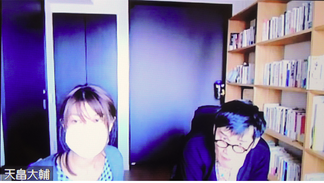
Dr. Tenbata We originally conducted a project to ask people with some kind of disability to talk about the kind of social life they lead, and then to transmit their stories through online media. Based on the stories we obtained, we felt the need to deepen our understanding of the challenges of supported employment in particular, and launched this project.
For instance, there are many people who live by themselves using 24-hour assistance. They were finally able to live by themselves after much negotiation with institutions and their families, with the goal of living in the community. But we found that the reality is they now wonder what they should do with the time they spend with their care workers during the day. In addition to increased anxiety about the future, many of them had chronic illnesses to begin with, and the COVID-19 pandemic restricted their ability to go out and about more than people who is not living with a disability, so how they spend their time during the day became a serious problem.
On the other hand, the Ministry of Health, Labour and Welfare's "Koyoshisaku tono Rennkeiniyoru Jyudoshogaishatoushuryoshientokubetsujigyou” (Special Project for Employment Support for Persons with Severe Disabilities, etc. in Coordination with Employment Measures) began in October 2020. Working with care is still not possible under the system. Nevertheless, if local governments have special rules in place, it is now allowed in practice. However, the administrative procedures are very complicated, and as of last November, only nine municipalities in the country had established such a system. The current situation is that the people themselves have to start by negotiating with the local government, saying, "I want to work in this way, so I would like this system to be established.” We have been continuing with negotiations in Musashino City, where I live, but I was told it will take three years. Today I am joined by Ms. Iwaoka, one of our team members who lives in Kitakyushu City. The city has the required system in place, and Ms. Iwaoka has been using the system herself, so please could you tell us about it?

Ms. Iwaoka Actually, I have yet to meet Dr. Tenbata in person. I can say that our connection was made possible because Zoom has become so commonplace.
I had wanted to work, but I worried constantly because it was not possible to use a caregive while working. At that time, there was an announcement that the Ministry of Health, Labour and Welfare was going to start this special project for employment support, and I talked to a local city council member about my desire to work after I graduated from college. I was not interested in politics either, but I think it was significant that I consulted with a council member. Kitakyushu City and the local government were very understanding, and I am very grateful that the system was adopted smoothly. We were also able to get the people at the company that hired me to work with us to think about the need for this support system and incorporate it into their workplace.
I opted to work from home myself and this month I was finally able to start working part-time while accompanied by a care worker. However, there are certainly considerable differences from municipality to municipality, so I would like many people to know about the example of Kitakyushu City and how I was able to work there.
Dr. Tenbata Dr. Suzuki asked me a question prior to this roundtable about my thoughts on the division of roles between the technological approaches in supporting people with disabilities and my own research which focuses on human interaction. First of all, allow me to explain the medical model and the social model. While I think that a medical approach is needed, I also believe that in order for socially marginalized people to live in the community, they need to build relationships with diverse others, and to do this, they need to not only transform themselves, but also eliminate obstacles on the part of others and society.
People with disabilities have long been subject to a medical model approach, and this is also ingrained in their own thinking. It can be said that the social model approach has been neglected. Therefore, I have conducted my research from the viewpoint of the social model, which includes contact with society.
In terms of the technological approach, I have also considered universal design in the true sense. About 10 years ago, I wrote a paper on the use of Skype for people with severe physical disabilities who have difficulty getting out and about. I found service equipment that can be quickly operated by a support person is desirable. Complicated and unfamiliar equipment made for people with disabilities is very inconvenient for them to use, as they are forced to rely on others to operate it.
So, a book called "Shaberenai Ikikata toha Nanika (What is Life without Being Able to Speak?) was published last month, which incorporates what I just talked about. It is based on my doctoral dissertation with some revisions, so please pick up a copy if you would like to (laughs).
Dr. Suzuki That was very informative. I asked the question because I thought there must be a social approach that I am unaware of, since engineering people inevitably take it on themselves to view the target as the object. However, it turned out that such an approach has been neglected in the first place. Listening to you reaffirms the importance of the subject in the question of how people with disabilities perceive and act in the world.
Professor Nakanishi I mentioned earlier that the Showa-era model was to separate the workplace and home, but it seems to me that Dr. Tenbata regards work in a different way from that model. Dr. Tenbata, in your opinion, what is the meaning of work, and what is the demarcation between working and living?
Dr. Tenbata’s care worker informed us that Dr. Tenbata expressed the keywords “Koichi Yokozuka” and “Hahayo, Korosuna!”(Don’t Kill, Mother!) and in response to that, team member Mr. Shimada commented instead of him.
Mr. Shimada In 1970s Japan, there was a movement to lighten the sentences for parents who killed their children with disabilities, and people with disabilities campaigned against it. Aoi Shiba no Kai, an organization that led the movement for people with disabilities in Japan, appealed against the killing of children with disabilities. Koichi Yokozuka, who had cerebral palsy, was at the center of the group. Mr. Yokozuka wrote, “Don’t Kill, Mother!” The members of Aoi Shiba no Kai fought for people with disabilities, who were being held back by their families and institutions, to live their lives in the community, even if it meant kicking back against their parents' love, and they laid the foundations of the movement for people with disabilities in Japan.
Dr. Tenbata Mr. Shimada has explained the prerequisite information, and I would like to answer Professor Nakanishi’s question based on that. I sympathize very much with Mr. Yokozuka’s attitude to work, which is ingrained as a norm that has shaped me. To be more specific, when a person with a severe disability who is bedridden and has difficulty communicating lifts his or her hips to make it easier for the care worker to change his or her diaper, that action itself is also considered work. To put this in modern terms, it could be called unpaid work, as typified by domestic work. The distinction between work and leisure is now blurred, and the purpose of work has broadened to include solving problems and creating relationships. If we take that perspective, because people with disabilities living in the community creates employment for caregivers work and diversity in the community, I think it could be described as one kind of unpaid work. That kind of thinking is ingrained in me.On the other hand, however, as we work to promote supported employment, I think we must be careful not to send the message that people have to work. Although this may sound contradictory, I myself do not think it is great just being alive, and as a researcher, would like to produce research that is recognized by others. This may be because I have internalized ideas about "productivity and a merit system" within myself. I would like to add that I feel conflicted between Mr. Yokozuka's attitude toward work and the contradictory norms of "productivity and merit system.”
3) Closing the Roundtable Discussion

Foundation Thank you to everyone for your comments. Unfortunately, it’s about time to end. Finally, I’d like to ask Professor Nakanishi for a few words.
Professor Nakanishi As people with a wide variety of research themes were coming together, I was honestly concerned about whether we would be on the same wavelength, but we understood each other better than I had expected.
Society is beginning to change in many respects, and COVID-19 is in some ways encouraging this change and in some ways putting pressure on it, but the process of change is unstoppable. As part of this, there will be efforts to change the world for the better through this grant program and other methods, and I believe that many of these efforts will be trial and error. Sometimes it is valuable to create an idea or network with people you have never connected with before, which is difficult to do with ventures because they must make a profit. We hope that you will make active use of the grant program and gatherings such as this one, and that they will be an inspiration for your research as well. We will also be very happy if they create a positive impact on society in ways that we had not expected.
Foundation Thank you Professor Nakanishi. Representatives from three teams of grantees joined us today. Dr. Suzuki aims to build a model for understanding the world on a global scale, Dr. Tenbata is pushing for a fundamental reconsideration of the concept of work by focusing on the employment of people with severe physical disabilities, and Ms. Sato is trying to connect politics and youth through the use of DX. Although each of them has a completely different research content, area, methodology, and background, I believe that we were able to catch a glimpse of their shared deep-seated interest in the issues from the perspective of the "new solidarity" that is required in this era.
Starting last year, the Toyota Foundation Research Grant Program established “Interlinkages and Innovation for Future Societies” as the main theme with “Reevaluating Social Issues and Forging New Solidarity in the New Normal Era” as the subtheme. We have listed keywords such as “interlinkages,” “future societies,” and “new normal,” and we hope that we will continue to think about what these words mean with you and develop the grant program for a better society through discussions like the roundtable one we had today. Thank you very much for today.
